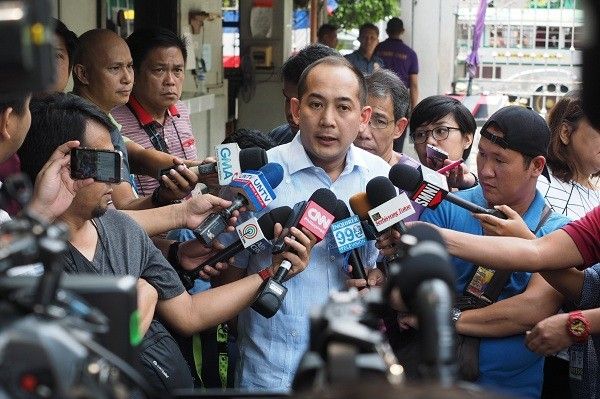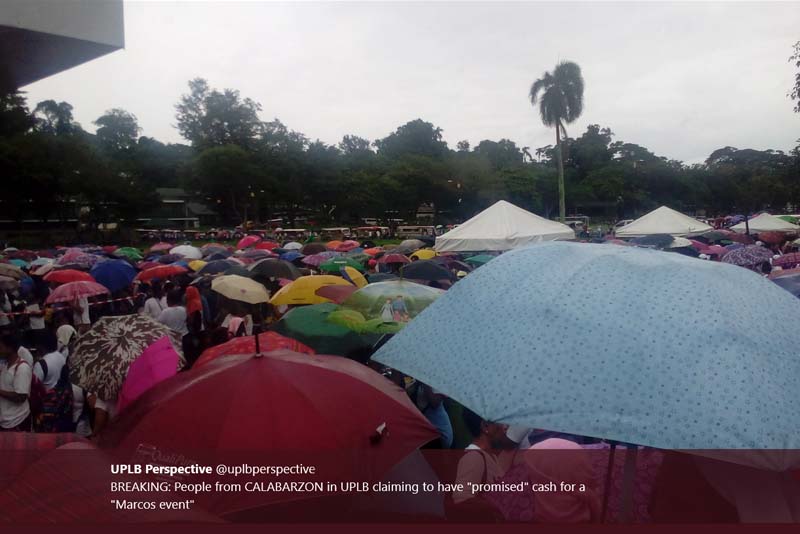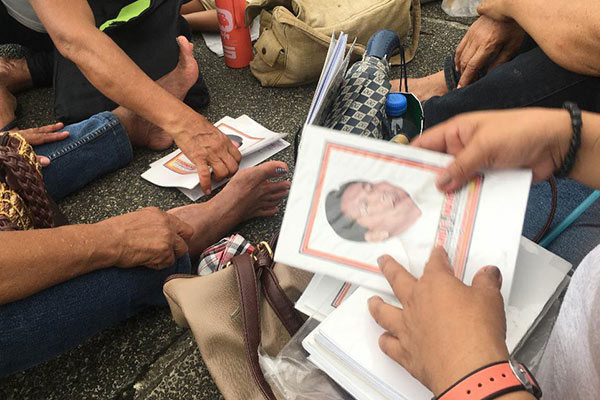Pressed on mythical 'Tallano Gold', Marcos spokesperson says he knows nothing

MANILA, Philippines — The spokesperson of presidential aspirant Ferdinand “Bongbong” Marcos Jr. said he has no idea about the mythical 'Tallano gold' long attached to the family of the late dictator.
Lawyer Vic Rodriguez, Marcos’ spokesperson, said he does not have a social media account so he has no idea what posts about the supposed Tallano gold are about.
"To be candid with you, I have always been candid with all of you. Hindi ko alam (I do not know)," he said Monday.
"Call me ignorant but I have to profess my ignorance now, hindi ko alam iyan. Hindi ako sumusubaybay sa social media. (I don't know anything about that. I don't follow social media) So you have to excuse me on that one," Rodriguez said when asked whether the supposed hoard of gold exists and if the Marcoses really own an impossible amount of the precious metal.
The fantastic claim about where the Marcos family's wealth is from is the same story that drove thousands to flock to the University of the Philippines Los Baños in September 2017, believing they would receive P1 million each.
Attendees trooped to the university in Laguna as early as 3 a.m. and were given booklets on “the Life and Achievements of Ferdinand Marcos,” at the event organized by "Bullion Buyer Ltd."
Attendees to the event did not get their supposed share of the fortune whether in gold or in cash.
At the time, Marcos distanced his family from the "scam" and warned the public not to be duped by fraudulent promises.
Marcos family wealth
Aside from social media posts, the myth of Tallano gold can also be found on the website of Kilusang Bagong Lipunan, a Martial Law-era political party that supports Marcos’ presidential bid.
In an elaborate and unsubstantiated story on its website, KBL said the elder Marcos was made trustee — and later paid a commission — of the many metric tons of gold supposedly owned by the Tallano family. The gold supposedly would be used for Marcos’ plan to "establish the former grandeur of the Maharlika."
In an interview with ONE News’ "The Chiefs" in December 2018, Sen. Imee Marcos said she has not seen any gold. “I’ve heard about it being talked about constantly but I don’t see any (gold),” she added partly in Filipino.
The "Yamashita gold" their family supposedly owns "continues to be an urban legend," she added.
That gold, according to legend, is part of the wealth that troops under Imperial Japanese Army Gen. Tomoyuki Yamashita hid somewhere in the Cordillera region in the closing days of the Japanese occupation of the Philippines. Treasure hunters were still looking for it as late as 2016.
Sen. Imee Marcos acknowledged on "The Chiefs" that "people are always tantalized" by stories of gold they supposedly own.
The Marcoses are accused of amassing billions of ill-gotten wealth, and the Presidential Commission on Good Governance was created precisely to recover assets from the Marcos family and the ousted dictator's cronies. So far, the agency recovered more than P171 billion.
In 2017, President Rodrigo Duterte claimed that an emissary for the Marcoses had reached out to say that the family was willing to return "a few gold bars" that they had hidden away.
"The Marcoses... Sabi nila, they’ll open everything and probably return yung nakita lang. Sabi nila: 'Malaki yung deficit mo sa... maybe this year and projected deficit spending baka makatulong'," the president said then.
“"Pero hindi ito malaki, but we are ready to open and bring back' sabi niya, pati yung a few gold bars," the president claimed.
Nothing came of the supposed offer.
The myths around the Marcoses
Marcos Jr. is running for president in the 2022 elections, marking the family’s second attempt to return to Malacañang after the matriarch’s aborted bid in 1992.
Myths about the Marcos family have been revived as the former senator prepares for the official campaign season. Attempts to revise history about the Marcos regime — which was marked by human rights violations and by graft and corruption — mostly circulated through social media posts, are again being propagated.
Dr. Jonathan Ong, an associate professor at the University of Massachusetts Amherst, told the Philippine Center of Investigative Journalism that Marcos campaign invests in "influencer marketing and community mobilization."
"Political ads are traditionally effective in conveying candidates’ general proposition and branding — but they can end up sounding generic and inauthentic. [Marcos] is more invested in the ‘meme wars’ and campaigning via political fan groups, community pages, and micro-influencers," Ong was quoted as saying in the January 13 PCIJ report.
Other myths that built the Marcos are discussed and debunked in this 2017 Philstar Newslab series.
- Latest
- Trending































